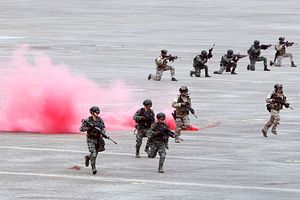As tensions continue to rise across the Taiwan Strait, it becomes increasingly important to analyze the state of Taiwan’s defense readiness. What would happen if China attacked? Could Taiwan’s military prevail? In what areas are the island nation’s defense capabilities the strongest? Where are they the weakest? And what can Taiwan’s government do to bolster its military power?
Any estimate of military power will necessarily rely on guesswork. Even the most cursory review of history shows that war is far too complex to predict with any certainty. Surprise and chance are the most enduring features of human conflict. Moreover, in this case, the fighting qualities of the Taiwanese armed forces are unknown because they have never been put to the test.
The same is true of their adversary, the Chinese People’s Liberation Army (PLA). Both sides have been locked in a bloodless stalemate since the Second Taiwan Strait Crisis of 1958. Neither has conducted the type of modern military operation that might give analysts meaningful insights into their likely performance when pitted against each other in some intriguing future scenario.
The truth is that analysts do not really know how well-trained, motivated, and tough the Taiwanese are. We know neither how many potential turncoats inhabit their ranks, nor how many hardcore warriors. To be sure, impressionistic evidence abounds, but the anecdotes available to us are often contradictory, and always a poor substitute for actual facts.
When it comes to estimating Taiwanese military power, we have more questions than answers. Yet that should not hinder us from making educated guesses. Nor should uncertainty prevent analysts from debating and testing the ideas that emerge from their guesswork.
The Taiwan Strait is one of the world’s most dangerous flashpoints. Getting it wrong could result in a catastrophic superpower war and millions of lives ruined and lost. The stakes at play demand we work with whatever tools we can. Partial knowledge is a whole lot better than none at all, much in the way that driving a car in the fog with your lights on is better than driving blindfolded.

































